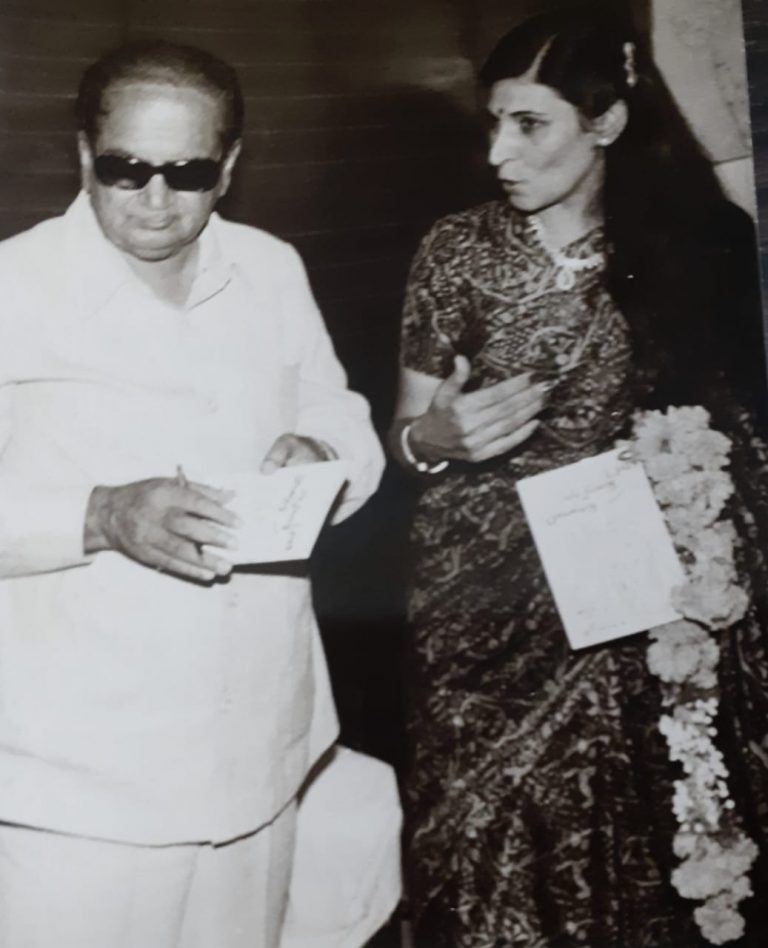
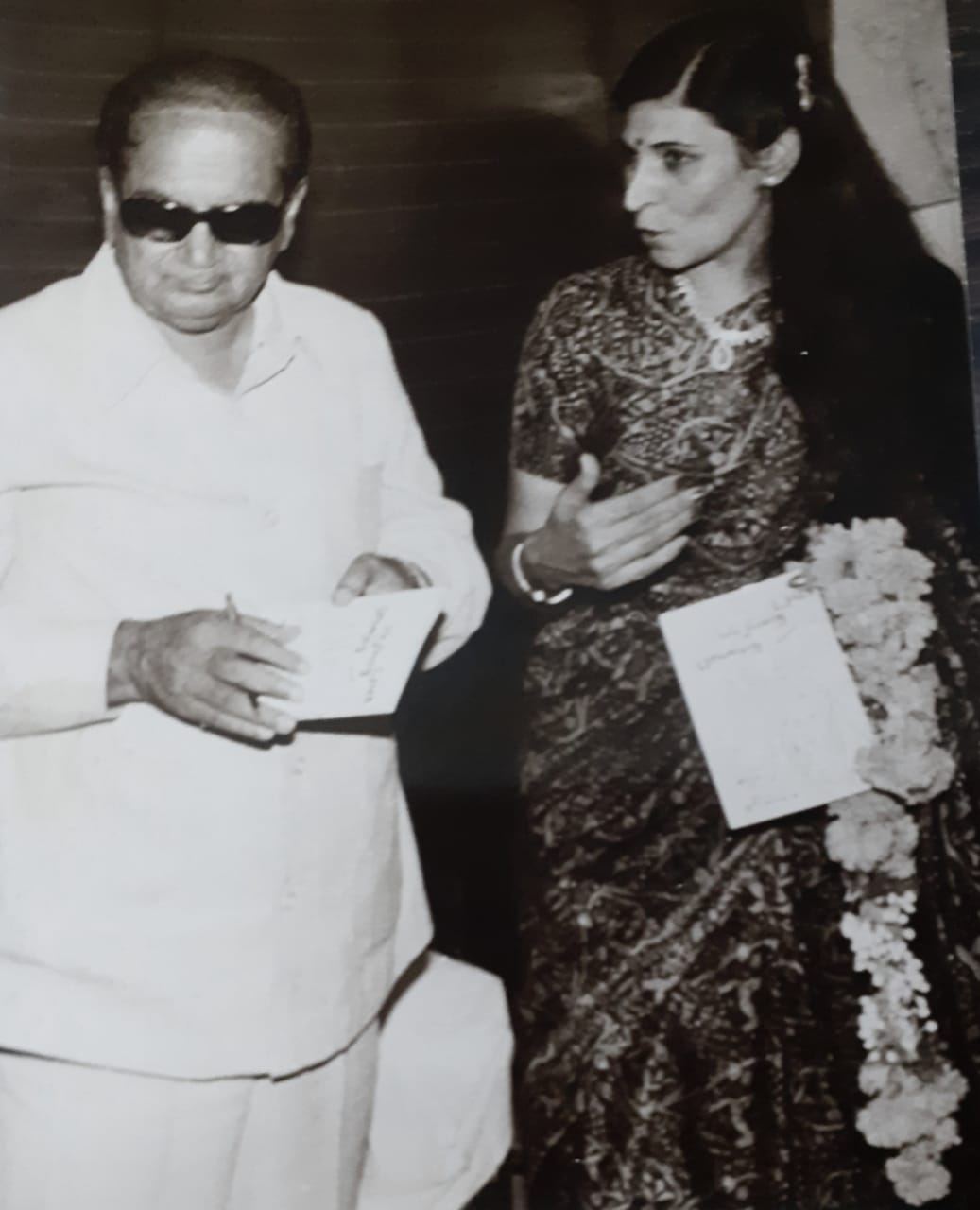
Veena Shringi, hailing from Sindh and settled in Delhi, India, is a multi-faceted personality – a poetess, writer, broadcaster, and social worker. She is author of 31 books. Her first book was ‘Kian Visariyan Verheechan’ (Can’t Forget My Loved Ones), the memoirs of her life from childhood to the time she migrated to India, published in Sindhi language in 1984. Now the English version of the same book is under publication. Sindh Courier is publishing a few chapters of book with consent of the author.
THE PHILANTHROPIST
My father was generous and a person with a kind heart. Also, my mother had a kind and lenient heart. They used to shower their charity on one or other person regularly. If I try to write about the philanthropy of my parents, it will be a very long story. Maybe they will be counted amongst the world’s best-known people. If anybody walks in our home with a request, he will never return empty-handed. Many people tried to swindle them due to their amiable and benevolent nature. Many have deceived us of our hard-earned properties. We were deprived of earning the rightful rent which we were entitled to. If I show the account of the receivables people may call me inept. Some may consider it to be philanthropy.
In Larkana district, in our town Shahdadkot (Formerly in Larkana district and now itself a separate district), we have two buildings. One is our home and the other is a place for the menfolk. Besides these two buildings, there were two attached buildings which belonged to us. One house we rented out to Makodomal Daryani at the rate of rupees two per month. After the death of this fellow, his so-called sister started living there. This house is still in her possession. This lady continued to live in Sindh after partition. Her all the relatives like her husband and others had migrated to India after partition. She continued to stay in Sindh for the sake of her so-called brother. Why she severed her relations with her family can only be told by that woman. There was one Hindu family who had migrated from Jhal Magsi. Muslims of Jhal Magsi had blackened their face and shunted them out of their village. They earnestly requested my father to shelter them. My father being a kind-hearted person gave that house to that Hindu family. The house was given to them at the rent of only six rupees per month. Anybody will laugh at such a petty amount of rent. After taking possession of the house that person started saying that Maharaj Gopikrishan had adopted him as his son. Ama Sati is my mother. We do household tasks in their home and they treat us like their children. When my brothers heard this they got angry. The matter went to court. In front of the judge, they reiterated the same. On hearing this, the judge also had a hearty laugh. However, the house is still in their possession. We started getting a meagre rent out of that house. We children in the house used to be very angry with our tenant Daryani. We used to say that someday we will take him to the task. He used to come every day to my father and used to flatter him. He used to come with spotless white trouser, collared shirt with gold buttons, a big black cap over his head and with a black coat with pocket watch chain dangling.
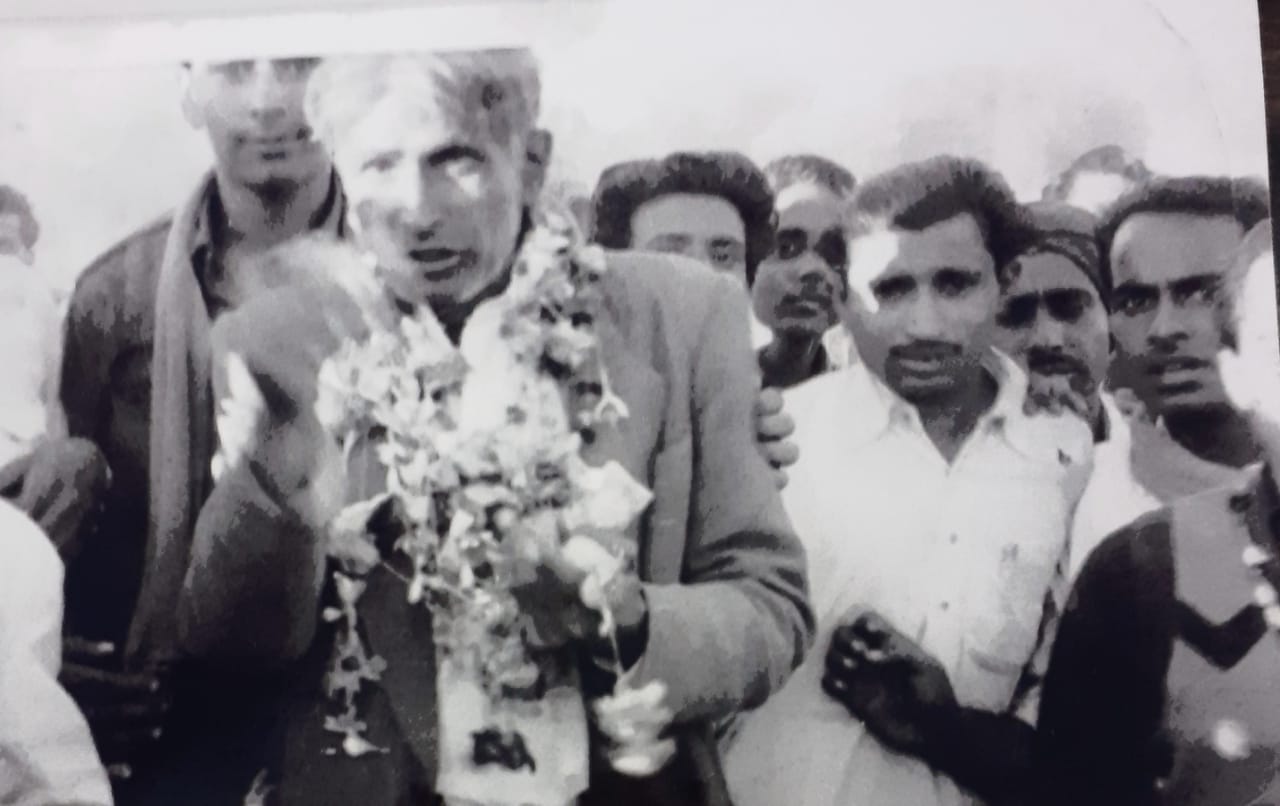
Once it so happened, that, when this fellow Daryani came, while my father was not there. We children let our dog loose upon him. The dog jumped up on him, and there was chaos all around. We used to be very afraid of our father. Hence we made up the story that in fact, we were trying to restrain the dog. Somehow that fellow Daryani came to know that we were inciting the dog to attack him. Similarly, when we wanted to take revenge, we used to unchain our deer to attack the other person with his horns.
Once, Sardar Peer Bux, cousin of Bhutto Saheb came to my father. He said “Maharaj, I like your deer. I will take your deer with me.” We children started crying. My father said to us “Don’t worry. I will get another deer for you.” My father told Peer Bux “I will part with my deer on a condition. You will not slaughter my deer.” He replied, “Maharaj, come to our bungalow and see for yourself.” After a few days, my father went to the bungalow of Peer Bux and saw that the deer had put on weight and was healthy.
We knew one Mukhi Manomal. He was Mukhi of Jhal Magsi where there used to be many deer in the jungle. We were officiating priests for the family of Manomal and he respected our family as a family of a Guru. Whenever he came to our house we children used to surround him. He had paralysis in one hand and his hand used to shake constantly. We used to tell him to send a deer to us. He sent a deer to us. We asked him, from where he gets the deer. He told us that people of Brohi tribe hide in the bushes near the pond in the jungle where animals come to drink water. When a deer comes with the baby deer to drink water, they catch hold of the baby deer, while the deer run away. This is how the deer is trapped.
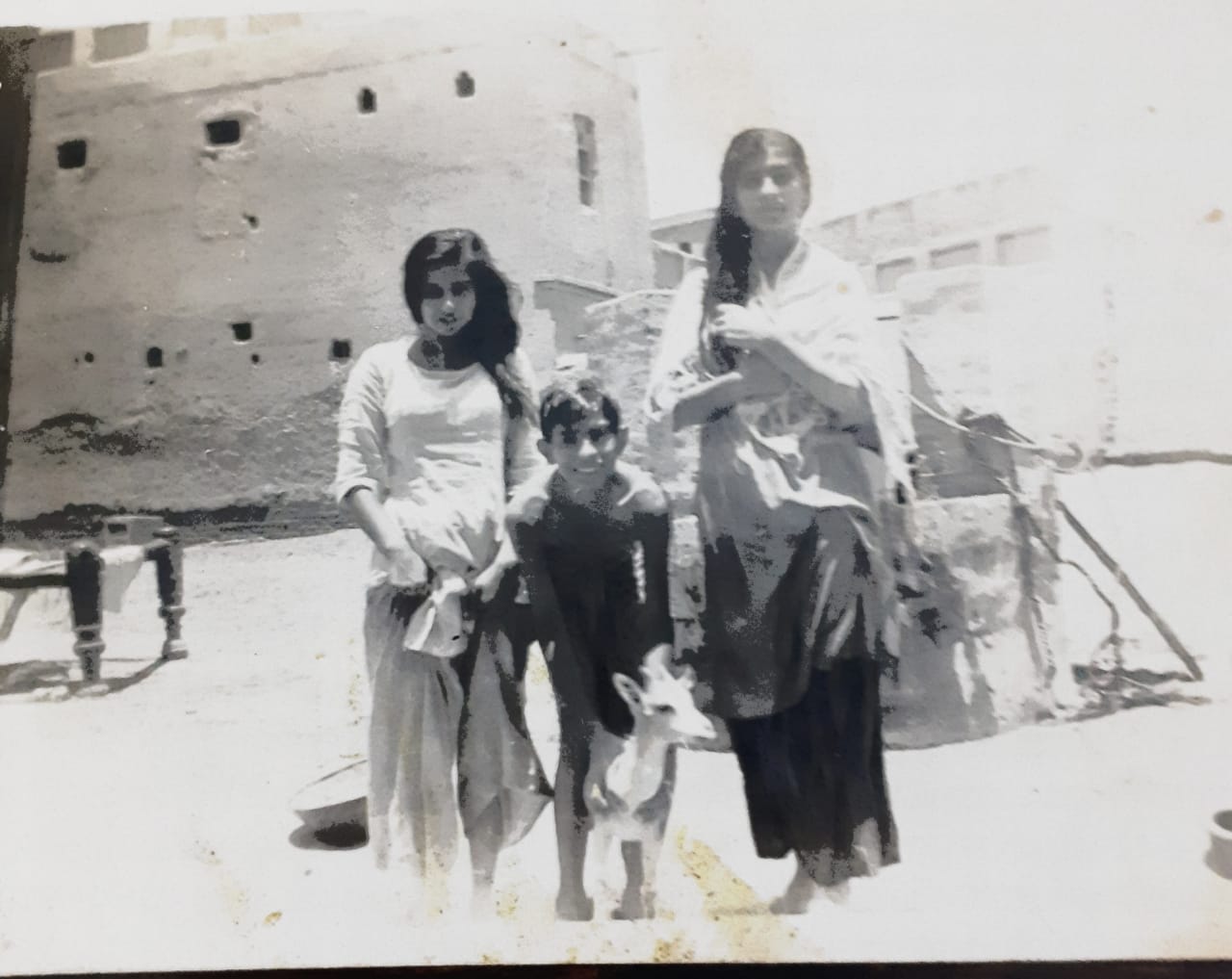
In Jhal Magsi, there used to be Sardar Mahboob Ali. He had two sons, Meer Saifullah Khan Magsi and Sardar Yusuf Khan. They used to respect our family a lot. Wife of Sardar Saifullah Khan, Mai Umtola used to treat my father as her brother. We were the owners of the most beautiful garden in Shadadkot. One day Mai Umtola came to my father. She said “Brother Gopi, I want that garden of yours for my daughter. You are my brother. I am sure you won’t say no.” My father could not say no. Thus, the beautiful garden was given to Mai Umtola for a paltry amount. We felt extremely sorry. Whenever she came to our house she used to say “Brother Gopi, the garden is yours only.” She used to send baskets full of fruits like mangoes, mulberry and berries to our home. Sometimes she used to send baskets of vegetables too.
After migrating to India, a few years back my mother told me that Meer Saifullah Khan was murdered by his close relatives. It was shocking news. It was said that Meer Saifullah Khan was educated at Dehradun School. He had come to our home several times. He was a handsome young man. He used to be attired in white Salwar and shirt and wore goggles. There were several persons like him, who used to give utmost respect to my father. Few of them were Hyder Bux Jatoi, leader of peasants and farmers; Meer Ali Bux, Qazi Faiz Mohammad, Mumtaz Bhutto, Sardar Peer Bux, Zulfikar Ali Bhutto, Mahboob Ali Magsi, and other Brohi landlords who used to visit us. We had very good friendly relations with them.
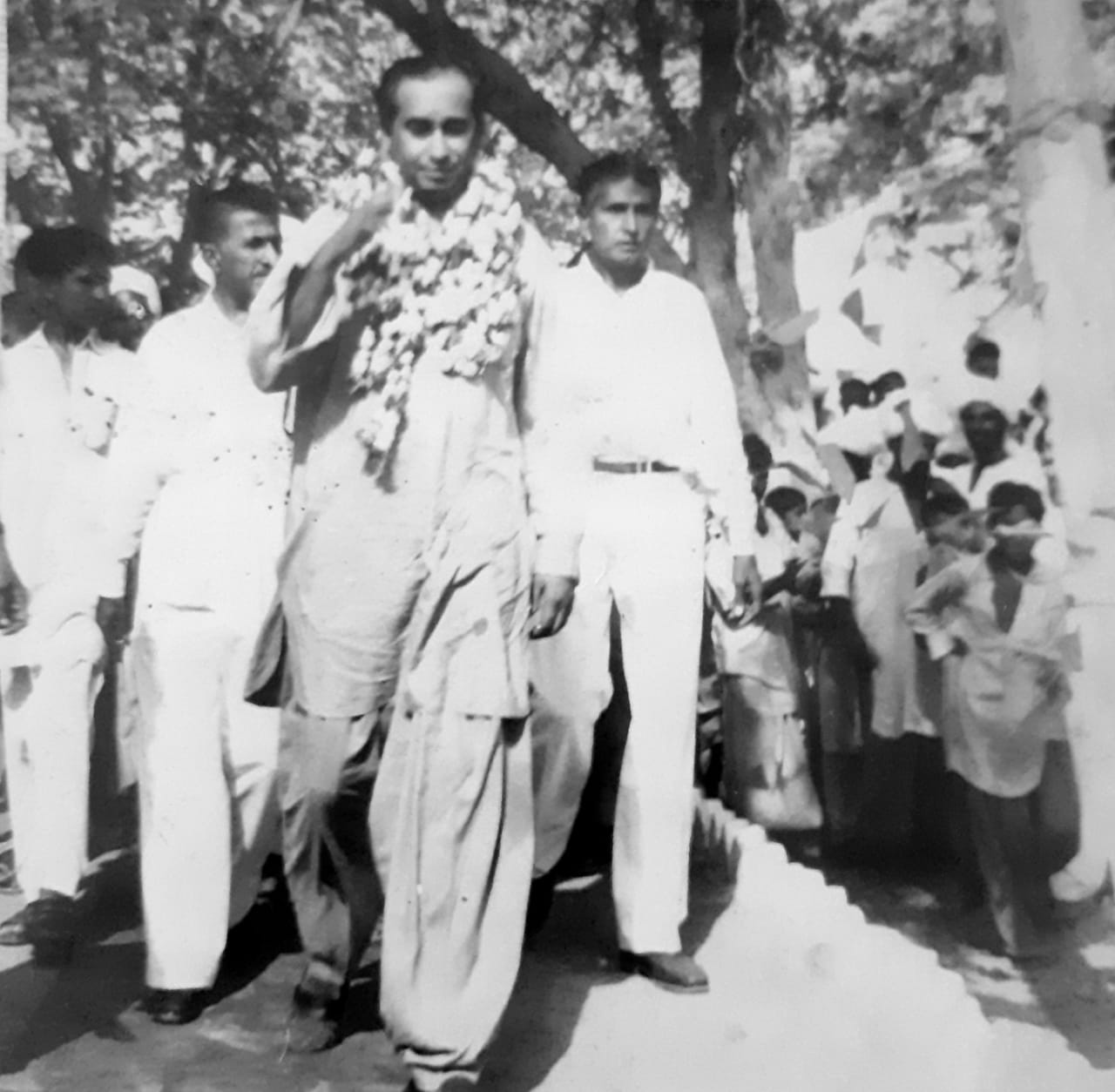
Record of social services rendered by my father before partition is available even today. Before partition, my father was a member of the Local Board. In 1965, during the regime of General Ayub, he was Chairman of Local Council under Basic Democracy System. But, after 1965, he avoided accepting any political or social post. Several roads and buildings in Shahdadkot were constructed under my father. Before partition, my father was honored by the government with a Gold Medal for his services rendered during the floods in Shahdadkot. He was greeted everywhere with Salam, and his hand used to get tired of returning the greetings with Salam. During his younger days, he was known as a lion. Even dacoits were afraid of him. No one dared to call him as ‘Waniya’. He usually wore a white shirt with white pants or a white pyjama. He used to visit his cultivation riding back of a camel.
Once he had to go to visit his lands. The camel man arrived with the camel. At the time my father was yet to get ready. In the meantime, children asked the camel man to take them for a camel ride. Eight children got on the back of the camel. Despite there being eight children on the back of the camel, the camel started walking. In the Shahi Bazaar of Shahdadkot in front of a shop, there was tin projection. The camel, being a tall animal, hit against the tin projection. The startled camel jumped and all of us eight children fell down. The girl who was sitting in the front got hit on the nose and her nose started bleeding. After that incidence, we were afraid of getting on the camel.
In Kambar and Ranwati areas we had fields. Once we all felt like visiting our lands. When the gang of children reached the field, they attached the plantation of watermelons. We started plucking the watermelons, which were unripe and were thrown away. Little did we know that we were destroying our fields. In the evening we eat snacks with butter with raw mangoes and buttermilk and returned from the picnic. My mouth waters even today when I remember that scene.
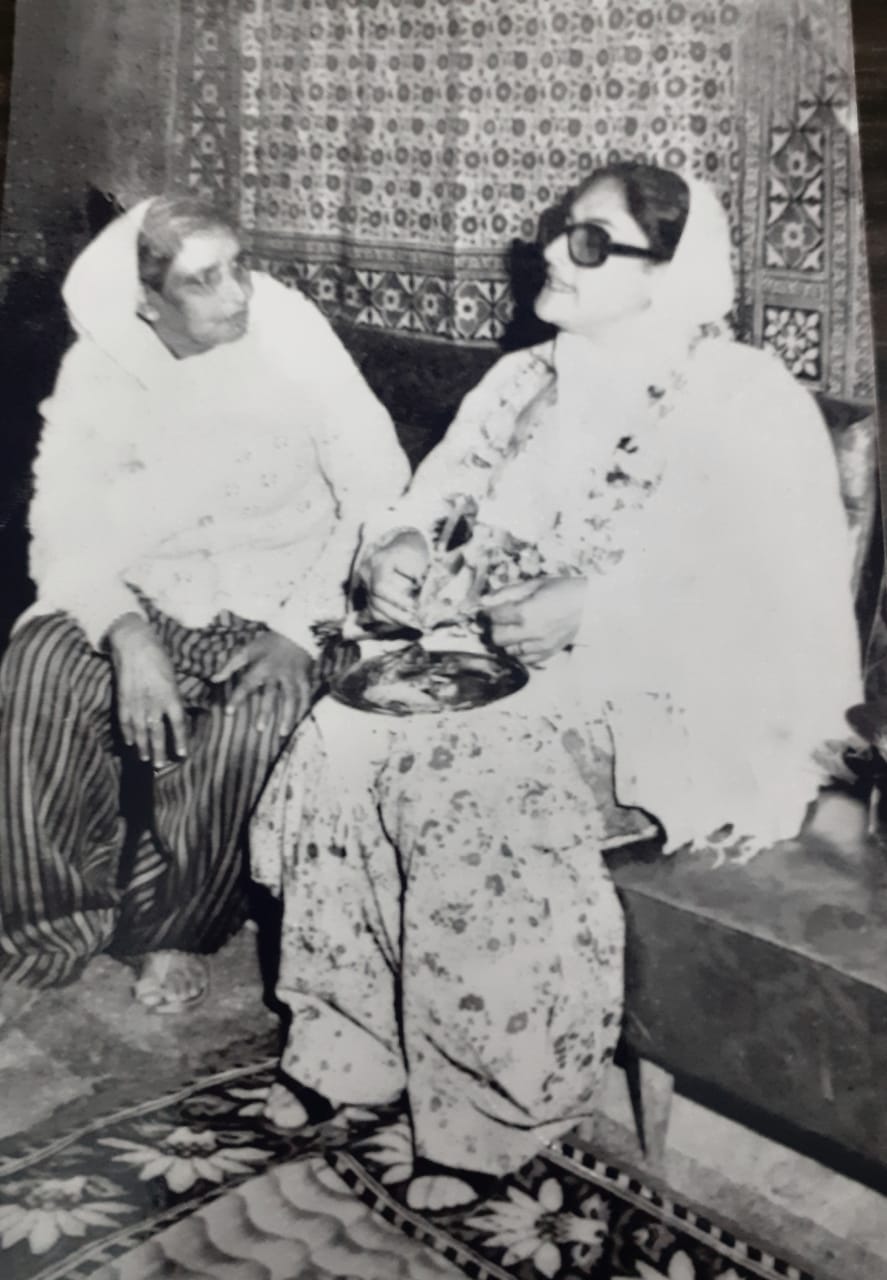
We were sitting under the berry tree. In front of us, there was waterwheel to draw water from the well. The eyes of the bullocks going round and round were tied shut. The screeching of water wheel mingled with the buzz of the waterwheel created a magical atmosphere. By the sunset, we returned to our home in a Tonga. I wish I could describe that picturesque scene more accurately.
From our rice fields, we used to get cartloads of rice. One room in the house used to be filled up to the roof. We used to jump over the rice heaps, without realizing that we were wasting our things. Our clothes and hair used to full of rice. The straw which used to come with rice was stored for the cows to eat. One of our cows used to drink up its milk. We had seen such a thing for the first time. Even my father and mother said that this is the first time they have seen such a thing. We used to sit eagerly to see when the milk comes in her udders so that we can milk the cow. But, when we approached, it used to stop giving milk. At times my elder sister and my brother used to attempt milking that cow but mostly they were able to get very little milk.
Once it so happened that some thieves took away our cow. In the evening we started searching for the cow. My mother told the landlord of our town that he should help in tracing out the cow. In return, he said “Sister! Don’t worry. I will get you another cow.” My mother said, “Look, Brother! If I don’t get my cow back, it will be insulting to you. It is a matter of shame that the thieves took away a cow from your area.” The thieves in our area used to steal the cows and send them to Baluchistan, overnight. One lame person named Fazloo was hand in glove with the cow thieves. With great difficulty, we could get our cow back. In Shahdadkot town no one dared to steal a thing from our house. Though, there used to be a theft case in homes of other Hindus in the town. The latch on the outer door of our house was loose. One could open the latch with a little push. Despite this, there was never a theft case in our house.
Near Jhal Magsi there is a village of Baricha Tribe. Some Hindu families from that village migrated and settled near our barn. The thieves in our area came to know that the Hindus had plenty of money and gold. So, they jumped over their wall to steal. Someone saw them and started shouting. The thieves had no other go, so they jumped in our barn. My father and my brothers caught hold of the thieves. Then it was free for all. Everyone around, be it a woman or a child started slapping the thieves. Women of Baricha Tribe are more powerful than men.
Near Jhal Magsi there used to be a water spring at Lakha. People used to come there to take a bath from far away. It was believed that the spring water had medicinal properties and people used to get cured of skin diseases. In Baricha there were four-five small shops of Hindus.
___________________
(Translated from Sindhi language by Ram Daryani)
Click here to read Foreword of the book
Click here to read Chapter 1
Click here to read Chapter 2
Click here to read Chapter 3
Click here to read Chapter 4